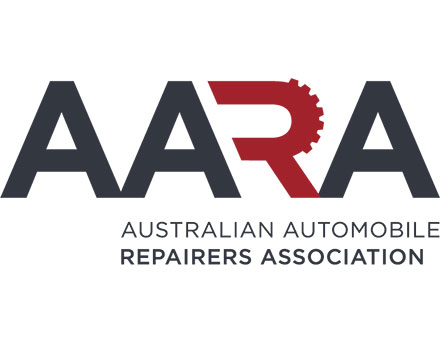In 2016/17, MTAA played a key role advocating for independent automotive repairers and advising the Australian Competition and Consumer Commission (ACCC) when they were undertaking an in-depth 18 Month analysis into the new car retailing industry. This included providing submissions to the ACCC for interim and final reports.
MTAA submissions can be accessed using the following links:
- MTAA submission for the interim report: Download .pdf
- MTAA submission for the final report: Download .pdf
- MTAA supplementary submission for the final report: Download .pdf
The ACCC New Car Retailing Industry Market Study Final Report can be accessed using the following link: Download .pdf
MTAA and state and territory member associations advocated strongly for the ACCC to:
- Confirm the impact and identify a solution to ensure fair and reasonable access and use of technical and repair information for independent mechanical and motor body repairers.
- Examine concerns surrounding proposed changes to Australian Consumer Law (ACL) definitions of major and minor faults, among other issues.
MTAA CEO, Richard Dudley, said the Federation and state and territory association members were pleased the ACCC final report has largely addressed these critical issues and called on the Federal Government to support the recommendations and for Government and industry to get on with implementation.
MTAA and members have now turned their attention and resources to the immediate action required to address the ACCC recommendation for a mandated scheme to ensure access to technical and repair information by all automotive industry sector participants and independent repairers in particular.
‘MTAA believes this mandated scheme, complete with an accreditation process or safeguard, must be developed and determined by mid-2018 for implementation by 1 February 2019 following consideration by regulators and Government’, Mr Dudley said.
MTAA provided facts sheets for mechanical repairers concerning the outcomes of the ACCC market report that can be accessed using the following link. Download .pdf
MTAA also provided facts sheets for dealers concerning the outcomes of the ACCC New Car Retailing Market Study Report that can be accessed using the following link. Download .pdf
MTAA also provided a media release which can be accessed using the following link. Download .pdf
Access to repair information
Building on the recommendations from the Australian Competition and Consumer Commission (ACCC) new car retailing market study, MTAA is enthusiastically advocating for the introduction of a system that ensures the reasonable access and use of technical and repair information for independent mechanical and motor body repairers.
By taking a leading role in the development of a system to ensure fair and equitable access to repair and technical information, MTAA and member associations are:
- Refuting claims by some industry associations that the provision of accessto repair information has led to increases in vehicletheft are inaccurate.
- Forming relationships with key international industry experts who have in-depth experience and knowledge of systems of delivering repair information in other key international markets; including the pros and cons of each system.
- Facilitating meetings involving international experts, key Government officials (including from the ACCC and Commonwealth Government’s Treasury), key members of MTAA Member Associations and other key industry stakeholders.
- Developing a prescribed mandated code / system for presentation to Government that includes involvement of industry and has a required level ofACCC oversight and enforcement of compliance that is afforded to other mandated codes including the Franchising Code and the Oil Code.
- Advocating for a Code that will:
- List security exempt items. (This is already determined in the USA and Europe)
- Identify an accreditation scheme so that independent repairers have the accreditation or certification to access repair information.
- Include a dispute resolution mechanism.
AARA will play a key in advocating for mandated prescribed code and will provide technical information and user requirements for any system developed that distributes repair information to independent repairers (including access to service bulletins).
Environmental compliance
ARAA and MTAA will advocate for environmental policies (including compliance requirements) that do not adversely affect the business operations of independent repairers. For example, clarity will be sought on the lack of transparency of regarding the operation of the oil levy including the level of funds generated and what the funds are used for. Another example includes clarifying coolant disposal and recycling requirements across Australia’s states and territories.
Skills shortages
The automotive repair and maintenance sector accounts for the largest share of the automotive industry activity and employs 142 people within 37,406 businesses. However, skill shortages are at the highest levels ever recorded with a total shortage of 27, 377 skilled personnel which is expected to rise to 35,083 during 2017/18.
Key reasons for skill shortages include: declining levels of new entrants into automotive trades, the poor quality of available labour, and problems with attraction and retention of labour. It is also the result of Government discontinuing type 457 immigration working visas.
MTAA and AARA aim to take a key role in providing advice toautomotive education providers (including MTAA member associations) to improve training provision and ensure that the appropriate skills are being adopted for future industry requirements.
Business to business arrangements
Consumer and business rights and obligations are a concern for independent automotive repairers across all Australian States and territories. Concerns include thefitment of consumer supplied parts and the failure of parts used in repair processes that increase the risk of litigation; particularly in relation to product liability.
MTAA and AARA will support individual MTAA member associations in efforts to develop disclaimers and education material on the Australian Consumer Law (ACL) for industry. These disclaimers are often included on job cards (dependent on state requirements as some states don’t use job cards).

